The two bills signed into law by Gov. Roy Cooper on May 4, both unanimously passed by the General Assembly, together designate nearly $1.6 billion for the state’s COVID-19 response and grant flexibility in many areas of regulation.


The two bills signed into law by Gov. Roy Cooper on May 4, both unanimously passed by the General Assembly, together designate nearly $1.6 billion for the state’s COVID-19 response and grant flexibility in many areas of regulation.

“It’s hard to adapt to catastrophe when your city’s income inequality is so bad it resembles a Charles Dickens novel, and narcissistic politicians perpetuate it in order to further their careers.”
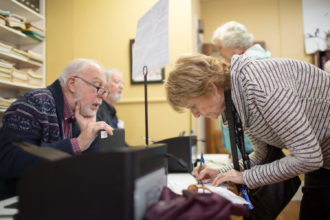
Adjustments for a second round of primary voting in NC congressional District 11 could be preview of what whole state will face in November.


“My whole world seems to be closing,” says Danny Bernstein, an Asheville-based outdoors writer who regularly leads hikes for the Carolina Mountain Club and Friends of the Smokies. “Staying 6 feet apart is easy on the trail. But how can we have outdoor activity if almost every piece of public land is closed?”

Asheville’s smallest brewery and the taproom/bottle shop in which it’s housed are the first brewing industry businesses to close as a result of COVID-19 repercussions.

With 49 years experience as a pastor, the Rev. L.C. Ray adjusts to life as an online preacher during COVID-19.
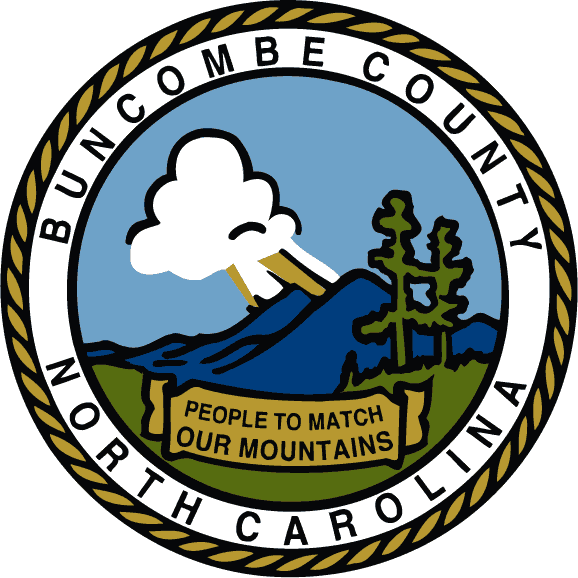
The plan, which has been under development since July and was initially expected to be adopted in September, lists four “community focus areas” for Buncombe’s leaders: an educated and capable community, environmental and energy stewardship, resident well-being and a vibrant economy.
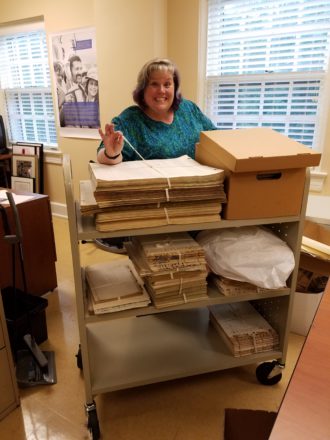
Recognizing the historic significance of COVID-19, local archivists discuss ways to record the moment for future generations. They also offer guidance for those looking to better organize their family documents during the “stay home, stay safe” mandate.

Even as people resume small gatherings, they will be expected to maintain a physical distance of at least 6 feet and follow public health guidance on sanitation and masks. The county’s cap on wedding and funeral attendance remains at 10 people, less than the state limit of 50.

Prior to COVID-19, hair stylist and salon owner Laura Anderson viewed her industry as recession-proof. These days, with her business temporarily closed, she is finding ways to adjust to life during a shutdown.
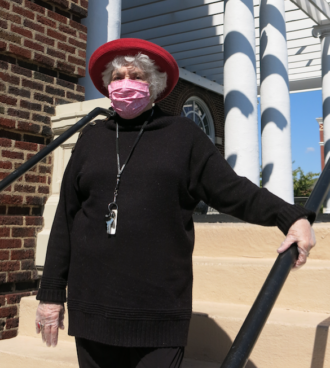
For the last two decades, Barbara Gravelle has called the Battery Park Apartments in downtown Asheville her home. Like many right now, she is anxious about the current COVID-19 pandemic.

Since late March, Michael Stratton, his wife, Amanda, and a small, hardworking steering committee have managed to transform a 4,000-square-foot grassy field near Fairview Road into 15 neat garden beds, which in mid-April were already speckled with green sprouts of onions, potatoes, kale, chard and more. The group plans to donate the produce to food pantries and neighbors in need due to COVID-19.

“To be honest, if we don’t get the right help on our loans from our banks and lenders, we won’t be able to pay our bills and we will be in default of our loans, and that’s when it all crumbles. That is the fear. “
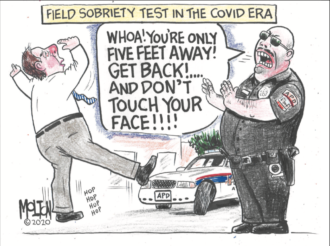
Molton’s weekly weirdness

Formerly outdated courting rituals see a rise in popularity and local construction crews dish on their new projects.
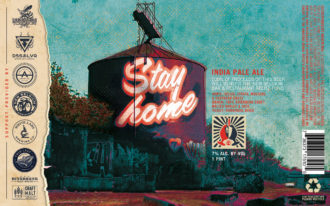
Numerous Asheville-area breweries are finding ways to support local residents affected by COVID-19.

“NextGen North Carolina is calling on the North Carolina legislature to adopt a universally accessible vote-by-mail policy that ensures all North Carolinians can cast their ballots this November.”
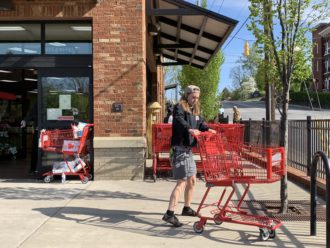
While many local residents laud efforts to ensure safety for shoppers and employees at retail stores that remain open — among them grocers, drug stores and hardware retailers — others criticize certain stores and fellow shoppers for failing to wear masks or be mindful of social distancing requirements.

“It’s important to get our economy moving forward. We’re helping with unemployment payments, stimulus money and the businesses that continue to be open,” Gov. Roy Cooper said at an April 23 press conference. “But I won’t risk the health of our people or our hospitals. And easing these restrictions now would do that.”
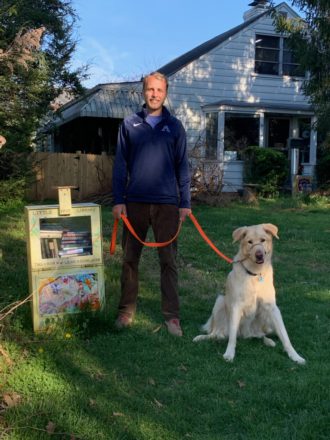
“Being stuck at home doesn’t have to mean personal regression. So why not press pause on the remote and go pick up a free book? Just remember to wear gloves and bring a wipe.”